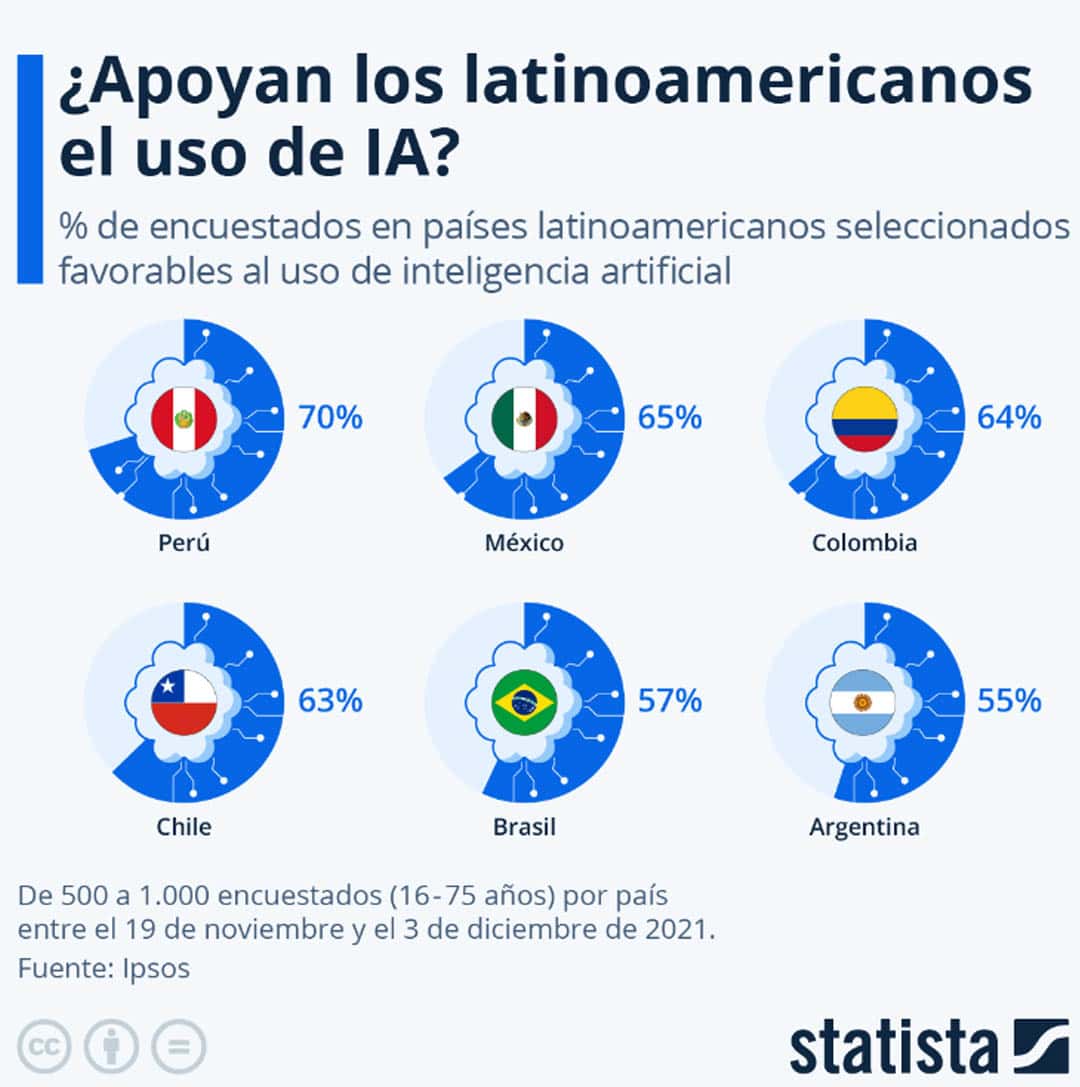
Por Ayax Bellido
November 14, 2023
Artificial Intelligence (AI) is revolutionizing various industrial and commercial sectors, offering innovative and efficient solutions. Statista forecasts that by 2025 the AI market will exceed USD $300,000 million. In this context, NEORIS, a company with more than two decades in the technology sector, has identified key trends in AI application across different fields.
AI is crucial in fraud detection and prevention in the banking and financial sector. This technology identifies suspicious activities in real-time through rapid and precise data analysis, reducing costs and enhancing customer experience.
Moreover, Artificial Intelligence improves logistics and customer experience in the retail industry. An example in the spirits industry demonstrates how AI can assist consumers in exploring food and drink combinations, offering personalized recommendations, and providing detailed product information.
AI is essential in the manufacturing industry, especially for companies with large truck fleets. Using satellite data helps monitor vehicle performance, optimize supply chain efficiency, and ensure driver safety and integrity.
AI is vital for speeding up and improving the accuracy of medical diagnoses, minimizing errors, and enhancing healthcare. It is precious in the early detection of terminal or serious diseases, which can be crucial for patient health.
In education, Artificial Intelligence enables educators to create interactive and personalized content. Tools like Chat GPT facilitate the tracking of academic performance and the creation of teaching materials tailored to students’ individual needs.
Jorge Lukowski, Global Director of Communication and Marketing at NEORIS, states that AI is changing how we interact and work, transforming the game’s rules in various sectors.
Implementing AI in businesses allows them to quickly adapt to market trends and generate relevant content in real-time, thus enhancing their competitiveness. However, this technology also poses challenges, such as the need for training and cultural adaptation of users.
Lukowski emphasizes the importance of investing in quality data and promoting training in specific skills for the successful adoption of AI, customizing solutions to meet user needs.
“Investment and data quality -the new oil- are critical aspects organizations must consider when implementing AI. Therefore, it is important to promote training in specific skills required for adopting this technology and customize solutions to adapt to user needs,” states Lukowski.

Furthermore, according to a survey by Ipsos conducted at the end of 2021, countries like Mexico, Peru, Colombia, and Chile have high acceptance of the use of Artificial Intelligence among their inhabitants, undeniably making it a market of great interest and value for technologies of this kind.

Por Stiven Cartagena
December 4, 2025

Por Alfie Pannell
January 8, 2025
December 4, 2024
November 20, 2024
October 29, 2024